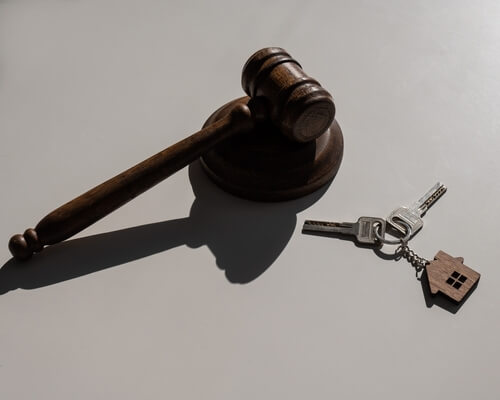Homeowners’ Association (HOA) attorneys play a pivotal role in the smooth operation of communities by upholding the rules and regulations set by the HOA.
One critical aspect of this responsibility is dealing with eviction processes. Evictions can be complex and challenging; a deep understanding of the rules and procedures is essential.
In this comprehensive guide, we will delve into the world of HOA eviction processes and rules, providing a look behind the curtain — and, for HOA attorneys, the knowledge you’ll need to navigate this intricate landscape effectively.
Understanding the HOA’s Governing Documents
Before going into the specifics of the eviction process, HOA attorneys must have a solid grasp of the HOA’s governing documents. These documents set the framework for what is and isn’t allowed within the community. They typically include:
- Declaration of Covenants, Conditions, and Restrictions (CC&Rs)
- Rules and Regulations
- Any Bylaws
Grounds for Eviction
HOAs typically have specific grounds for which they can initiate eviction proceedings with the help of a Dallas eviction attorney. Common grounds for eviction include:
Non-Payment of Dues
A homeowner consistently failing to pay their HOA fees can strain the association financially. HOAs may pursue eviction to recover these unpaid fees.
Violation of CC&Rs
Breaches of the CC&Rs — unauthorized renovations, unapproved exterior changes, persistent noise disturbances, and other violations — can warrant eviction proceedings.
Criminal Activity
A homeowner engaging in criminal activities poses a significant threat to other residents’ safety and well-being, justifying eviction.
Initiating the Eviction Process
HOA attorneys are instrumental in initiating the eviction process. Here’s an overview of the steps involved:
Notice of Violation
Before initiating eviction, the HOA must provide the homeowner with a notice of violation. This document outlines the specific offense and offers the opportunity to remedy the situation in a given timeframe.
Notice of Intent to Evict
If the homeowner fails to comply with the notice of violation, the HOA, under the guidance of their attorney, can issue a notice of intent to evict. This notice informs the homeowner of the association’s intention to pursue eviction if the issue is not resolved promptly.
Filing an Eviction Lawsuit
If the violation persists, the HOA attorney can file suit on behalf of the association. This legal action sets the formal eviction process in motion through the courts.
Navigating the Legal Process
The legal aspects of HOA evictions demand expertise in property law and the intricacies of eviction procedures in your jurisdiction. Attorneys must prepare a solid case demonstrating the homeowner’s violation of the HOA’s governing documents. This could involve presenting evidence of unpaid dues, documentation of rule violations, or any other relevant information.
Alternative Dispute Resolution (ADR)
It’s beneficial to explore alternate methods before pursuing eviction through the courts. HOA attorneys can facilitate negotiations between the HOA and the homeowner, seeking an amicable resolution. This can save time and money while maintaining community harmony.
The Eviction Trial
*HOA attorneys must be prepared to represent the association in court if all else fails. A trial involves presenting the case, calling witnesses, and presenting evidence to support the HOA’s claims. A successful outcome may result in the court issuing an eviction order.
Post-Eviction Procedures
After a successful eviction, HOA attorneys can assist the association in regaining control of the property and ensuring it is properly maintained. This may involve securing the property, changing locks, and addressing any necessary repairs or cleanup.
Let Manning & Meyers Help Guide You Through
Navigating HOA eviction processes and rules is a complex and legally intricate task. HOA attorneys play a critical role in ensuring that the community’s rules are upheld and that disruptive homeowners are dealt with appropriately.
Evictions may be challenging, but with the proper knowledge and expertise, HOA attorneys can successfully guide their clients through the process, benefiting both the association and its residents. Contact Manning & Meyers today and begin working toward a brighter future.


